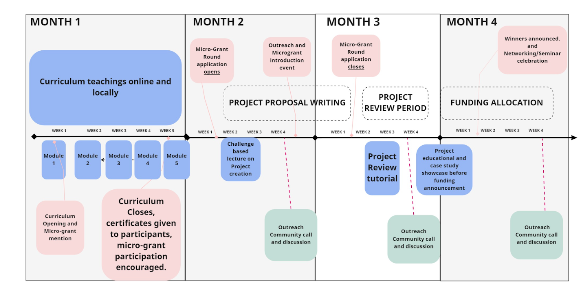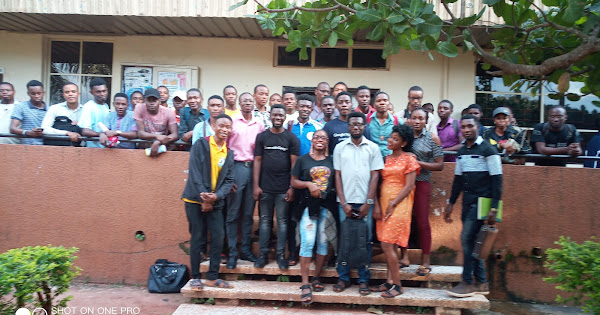- Your name, and that of your organisation (or the organisation that will receive funds on your behalf).
Derrick Mugasia,
IOMe254 Innovation Lab
Kenya Red Cross Society
- Name of event. Make another post with another event name if you have another event.
Build a DIY ROV (Remote Operated Vehicle) Robot KIT for Under water Education
3. Email address by which you may be contacted.
mugasia.derrick@redcross.or.ke
derrickmugasia@gmail.com
4. What open science hardware tool(s) will be the focus of your event?
OpenROV
Open-Source Electronics
Arduino
3D Printing
5. Describe your course or workshop, whom and what it is for, where and when it will be held, how many attendees (IRL or virtual) you expect.
One of our fablabs (I.O.Me005) is a community-based space located in Lamu a rural coastal town in Kenya. Part of our primary goals is to provide access to digital fabrication tools and technological skills necessary to promote problem solving and innovation within the community trageting children, the youth and artisans.
Our proposed workshop involves building a DIY ROV Kit that will introduce primary and secondary students to under water robot education while engaging them to STEM concepts such as Fluid buoyancy, Ohms Law, underwater thrust and water proofing design among others. Additionally, the Workshop will expose the learners to DIY process of assembling products as well as basics of digital fabrication processes. The kit will demonstrate to participants how they can use locally available materials coupled with Open-science hardware to create relevant learning STEM kits and marine related solutions especially being a community that stays next to the ocean.
We target to host a total of 15 students for a one-day workshop where learner will build and test the ROV. The workshop will be held during the first week of May 2023 as the students will be home for holidays away from their regular school programs. Preparations will however be done in April in order to engage with the school authorities and the identification of participants.
6. Do you have plans for ongoing activities after this event OR is it intended that the participants will continue activities after this event? If so, describe the intentions and plans here.
We have been building and developing projects, curriculum and kits aimed at promoting STEM Education and introducing digital fabrication technologies to learners (including those with special needs). The DIY ROV kit will become one of the kits and will help students to enhance problem solving and learning of underwater robots for marine exploration owing to our location at the coastal region.
These kits will then be used as part of the activities spearheaded by the Red Cross Clubs available in most local schools but also for implementation of workshops hosted by the IOMe254 labs.
7. What event outputs (e.g. teaching materials, curricula, software, etc.) will you make available? Will these outputs carry an open license?
We will make available the plans used to assemble the DIY ROV and workshop manuals used to effectively conduct the workshop.
8. What you will use the grant for, roughly.
Materials – 252 $
Facilitation – 127 $
Conference package - 91$
Transport & Logistics – 30 $
9. Provide links (references) to documentation or reviews of similar events or works you have executed. School coursework or projects can be listed, even social media posts. Anything to give a sense of what you’re about and your ability to successfully conduct this course or workshop. To keep this short, just the links and their descriptions will do.
https://twitter.com/KenyaRedCross/status/1502258012676923397?s=20
https://twitter.com/YSTKenya/status/1549776648580497408?s=20
https://twitter.com/iome254/status/1568258432142086145?s=20
https://twitter.com/iome254/status/1623252274288926720?s=20

